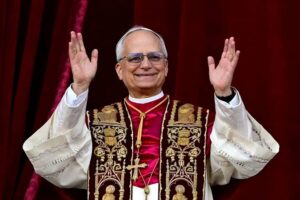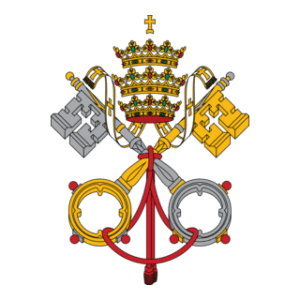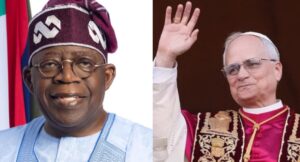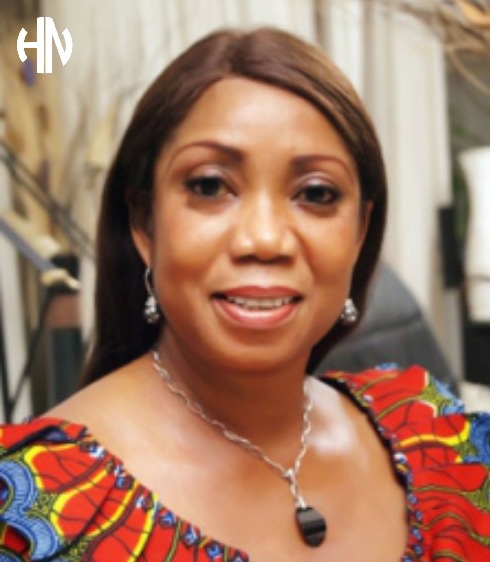By Princess Gloria Adebajo-Fraser MFR.
In a move that has drawn both attention and concern in Abuja and Rome, Pope Leo XIV recently named Nigeria among countries where Christians are being persecuted. This pronouncement comes at a delicate moment in Nigeria–Vatican relations and raises urgent questions about diplomacy, neutrality, and the role of the Catholic Church in complex national conflict.

Vatican Ties with Nigeria: A Brief Context
Nigeria is Africa’s most populous country and hosts a large Roman Catholic community. In May 2025, President Bola Tinubu made an official visit to the Vatican upon invitation from Pope Leo XIV. In the same period, the Pope appointed a Nigerian priest, Edward Daniang Daleng, OSA, as Vice-Regent of the Vatican’s Prefecture of the Papal Household, a senior administrative post. These developments signaled a deepening of ecclesiastical and diplomatic engagement between Nigeria and the Holy See.
Yet a notable diplomatic gap remains: Nigeria currently lacks a fully accredited ambassador at the Vatican, creating a vacuum through which unverified claims and one-sided messaging may flow. This void poses a risk: the Vatican must rely on correspondents and reports, which may be filtered or politically influenced.
The Statement and Its Implications

Recently,, Pope Leo XIV publicly listed Nigeria among countries witnessing alleged persecution of Christians. This echoes U.S. congressional inquiries into Nigeria’s human-rights record — including the designation of Nigeria as a “Country of Particular Concern” (CPC) by the United States in earlier years. However, major human-rights analysts and the U.S. AP report state there is no credible evidence that the violence in Nigeria meets the United Nations’ internationally accepted definition of genocide.
Crucially, Pope Leo’s earlier posture was more cautious. His staff reportedly did not immediately reference Nigeria in the context of genocide or targeted Christian extermination after Western media-led campaigns followed the CPC declaration. A shift to a more sweeping statement now raises questions: Is the Pope engaged in diplomatic judgment, or has the Vatican received a partisan briefing that skews toward one narrative?
Security Realities in Nigeria
No serious observer disputes that Nigeria faces grave insecurity. Armed groups such as Boko Haram, Islamic State West Africa Province (ISWAP), bandits and criminal gangs plague large swathes of the country. Yet Nigeria also appears on the 2025 Global Peace Index at rank 16 for nations with elevated internal conflict. If Nigeria is ranked 16th, this underlines the ambiguity: if genocide were underway, the rating and global response would likely be far harsher or more categorical.

Importantly, official Nigerian responses have rejected the genocide claim: the Attorney General recently stated that while religious-based violence exists, it is part of a broader security crisis rather than the systemic destruction of a religious group.
Politics, Diplomacy and the Rising Nigerian Profile
Beyond the security dynamics lies a bigger picture: Nigeria is positioning itself for greater independence and international influence—exploring dedollarisation of crude sales, currency-based air-ticketing solutions and new alliances with China, Russia and Brazil. Observers argue that Nigeria’s rising profile may trigger diplomatic pressure, sometimes framed as moral-religious critique. Could the “Christian persecution” claim be more about geopolitics than humanitarian truth? The Vatican, as a global moral authority, must tread carefully.
The Vatican’s Role: Neutrality or Advocacy?

According to the Vatican’s own statute, the Holy See remains a neutral moral actor, bridging diplomacy and faith. Canon law and diplomatic convention emphasise that ecclesiastical pronouncements on geopolitical issues should be based on credible evidence and balanced perspective. The recent shift in tone – from measured-statement to categorical inclusion of Nigeria among persecution states – invites skepticism. Why issue a strong denunciation without demanding a formal investigation or fact-finding process?
Past popes have taken more incremental approaches. For example, Pope Benedict XVI and Pope Francis visited conflict zones, referenced victims, and urged dialogue rather than issued blunt declarations. Their methodology: call for inquiry, invite reconciliation, trust data.

Given that, the Pope’s statement toward Nigeria feels premature, lacking transparent investigation and risking diplomatic strain.
Why This Matters to Nigeria

For Nigeria’s pluralistic society — where inter-marriages between Christians and Muslims are far from rare, and religious harmony has historically been a national strength — a Vatican statement could inflame perceptions of bias. HeadlineNews.News’ recent poll found that many Nigerian families include both Christian and Muslim spouses and children.
For the Tinubu administration, the statement opens a new diplomatic front at a time of severe domestic security and economic challenges.
For Nigerian Catholics, the prestige of having one of their own in a senior Vatican role now risks being overshadowed by the perception of partiality.
What Should Happen Next?

● The Vatican should initiate a formal fact-finding mission or call for one via its diplomatic channels before issuing definitive pronouncements.
● Nigeria should accelerate appointment of a full ambassadorial envoy to the Holy See, ensuring the Nigerian voice is heard in Rome.
● Catholic leadership in Nigeria (e.g., the Catholic Bishops’ Conference) and the National Patriots Movement may formally request Pope Leo XIV to reconsider or clarify his statement, citing lack of established genocide evidence and the need for balanced pastoral commentary.
● True diplomatic dialogue should replace headline-driven pronouncements: the Vatican’s moral role is best served by fostering unity, truth and reconciliation — not reinforcing single-narrative judgments.

Conclusion
Pope Leo XIV’s decision to list Nigeria among countries of alleged Christian persecution is a serious escalation. In the tapestry of Nigeria’s security crisis, the dominant threads are farmer-herder conflict, jihadist insurgency and banditry — affecting both Christians and Muslims. To frame Nigeria as a unique case of Christian genocide risks oversimplification, diplomatic damage and pastoral imbalance. The Vatican must live up to its long-held position as a neutral arbiter of justice, not a partisan actor.
It is time for the Church in Rome to stand not only for victims, but also for truth — and for Nigeria to respond with transparency and dignity. Only then can trust be restored, without playing politics with real suffering.

Princess Gloria Adebajo-Fraser MFR.
The National Patriots Movement.



